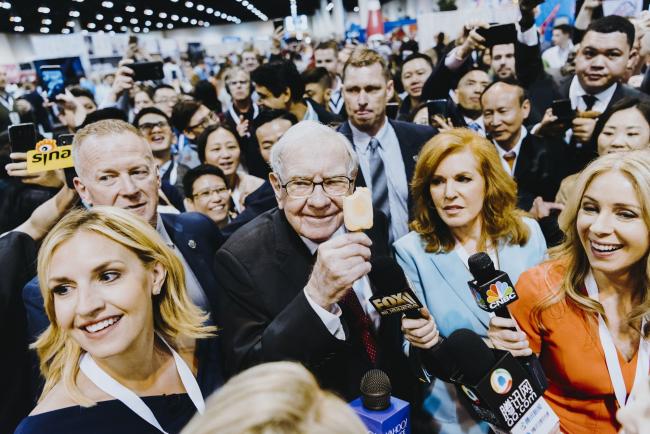This post was originally published on this site
https://d1-invdn-com.akamaized.net/content/pic9884a8630beccd15eff9671c68e18a5b.jpg
The question is making the rounds from Tokyo to Wall Street as investors parse the legendary stock picker’s decision to buy stakes in five Japanese conglomerates whose interests span everything from home-shopping networks to salmon farming.
While Buffett has offered few details on what attracted him to names like Itochu Corp. and Mitsui & Co., investors could do worse than look back to his 1977 letter to stockholders, his earliest such note available on Berkshire Hathaway’s website. There, he lays out the four business qualities that Berkshire values:
We want the business to be (1) one that we can understand
To some investors, Japan’s trading houses are anything but easy to understand.
Mitsubishi Corp., the largest of the five companies that Buffett invested in, is a major producer of coking coal and controls one of Japan’s biggest convenience store chains. Mitsui & Co., Itochu Corp., Mitsui & Co. and Sumitomo Corp. are just as diverse, operating hospitals and selling tires. The lack of focus has at times garnered criticism.
However, the firms derive the bulk of their revenue from industries that Berkshire knows well — energy and commodities. For example, Marubeni gets more than 90% of its revenue from agriculture, metals, energy and chemicals. Mitsubishi gets more than 42% from commodities, while the other firms count on the sector for at least 30%.
Buffett has been ramping up his energy and commodities investments elsewhere too. In July, Berkshire purchased most of Dominion Energy’s natural-gas pipeline and storage assets. It also recently bought a headline-grabbing stake in Barrick Gold (NYSE:GOLD) Corp.
“I’ve always said about the energy business: It’s not a way to get real rich, but it’s a way to stay real rich,” Buffett said at Berkshire Hathaway’s annual general meeting in May.
(2) with favorable long-term prospects
Trading houses are among the oldest companies in the world, and — due in part to their wide diversification — are unlikely to go bust anytime soon. Mitsui & Co. and Sumitomo have roots dating back to the 17th century, while Mitsubishi and Itochu are well over 100 years old.
The investment suggests Berkshire expects commodity prices and global trade flows to recover from the damage caused by the pandemic and the U.S.-China trade war, according to Yunosuke Ikeda, chief equity strategist at Nomura Securities.
And in the case that resources are unable to recover, trading firms are resilient because they’re diversified in new growth sectors, including IT, healthcare and even space. Despite a dip in revenue amid Covid-19, the top three trading houses maintained or increased their annual dividends.
The trading houses “will be around for a very long time,” said Thanh Ha Pham, an analyst at Jefferies (NYSE:JEF) Japan Ltd. “Given that they pay out a very large chunk at dividends, it is a good yield.”
(3) operated by honest and competent people
The companies may have appealed to Buffett in part because Japan has a reputation for trusted accounting, according to Pham, who called the country “a natural fit.”
To be sure, trading houses have suffered a handful of scandals over the last few decades. The latest was at Mitsubishi, which said last year that a Singapore-based employee had racked up over $300 million losses on unauthorized crude oil derivatives at a now-shuttered unit.
But generally the companies are known for being elite employment destinations in Japan, and they have no difficulty attracting top talent from the best universities. The five largest trading houses are among the top 35 most sought after companies for 2021 graduates, according to a survey conducted by Career+.
(4) available at a very attractive price
As always, valuations are likely to play a big factor for Buffett. A slump in the trading houses’ shares earlier this year left most of them trading below book value, with Sumitomo the cheapest at 0.69. Only Itochu is trading above book at 1.2 times. That compares with about 1.8 for the Nikkei 225 Stock Average.
“Mr. Buffett is looking at the intrinsic value,” Pham said. “These trading companies have evolved from trading to holdings companies. So they generate a large majority of earnings from equity holdings.”
©2020 Bloomberg L.P.

